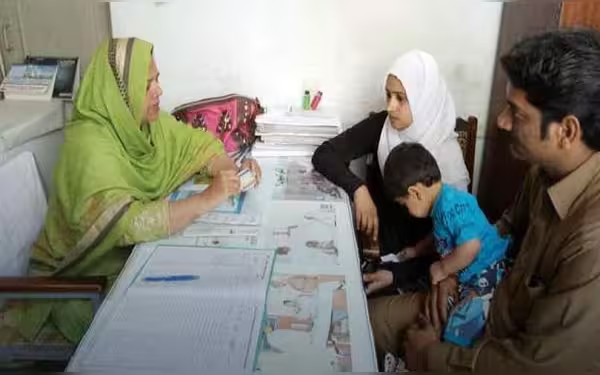Saturday, October 5, 2024 08:24 PM
UNFPA Advocates for Women's Rights Globally
- Promoting family planning and gender equality for sustainable development
- Urgent need to improve health and rights for women worldwide
- Challenges and implications of rapid population growth on environment and resources
 Image Credits: thenews
Image Credits: thenewsEfforts to promote family planning, gender equality, and women's rights globally to address rapid population growth challenges and achieve Sustainable Development Goals. Pakistan faces economic hurdles due to high population growth, emphasizing the need for improved healthcare and education systems.
Efforts are underway to promote family planning and ensure easy access to contraceptives, with a focus on advancing gender equality. The theme of this year's World Population Day highlights the importance of addressing the needs and desires of women and girls. The United Nations Population Fund is actively supporting women globally by advocating for their rights and implementing enabling laws and policies.
The current global population growth rate presents challenges in achieving Sustainable Development Goals due to inadequate implementation efforts. The increasing population exerts pressure on the environment, resources, and infrastructure, necessitating strategic actions to mitigate adverse impacts.
Women, constituting nearly half of the world's population, often face violations of their reproductive rights and lack decision-making power. Shocking statistics reveal that a woman dies every two minutes due to pregnancy-related complications, emphasizing the urgent need for improved health and rights for women worldwide.
With the world population exceeding 8 billion, sustainable practices, responsible corporate behavior, equitable access to healthcare and education, and voluntary family planning are crucial. Factors like fertility rates, urbanization, and migration significantly influence rapid population growth, leading to profound implications for the future.
Pakistan, as the fifth most populous nation, grapples with economic challenges, high inflation, and inadequate healthcare and education systems. The country's population growth rate, combined with poor infrastructure and limited resources, exacerbates issues such as food insecurity and unemployment.
The low contraceptive prevalence rate in Pakistan underscores the importance of promoting family planning and increasing access to contraceptives. Addressing population growth is vital to alleviating poverty and improving socio-economic conditions, particularly for the large youth population in the country.
Efforts to achieve Sustainable Development Goals in Pakistan face obstacles like lack of planning, insufficient resources, political constraints, and conflicts. On this World Population Day, the focus remains on empowering women and girls, ensuring reproductive rights, and fostering a sustainable future for all.













